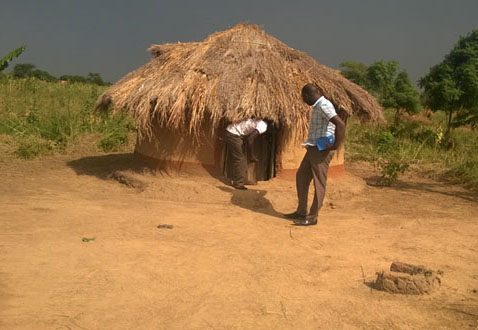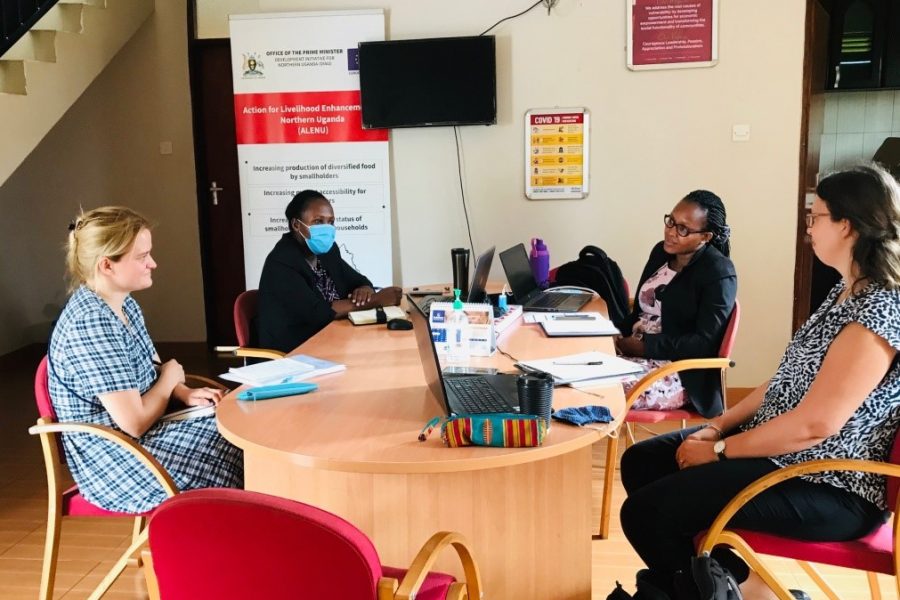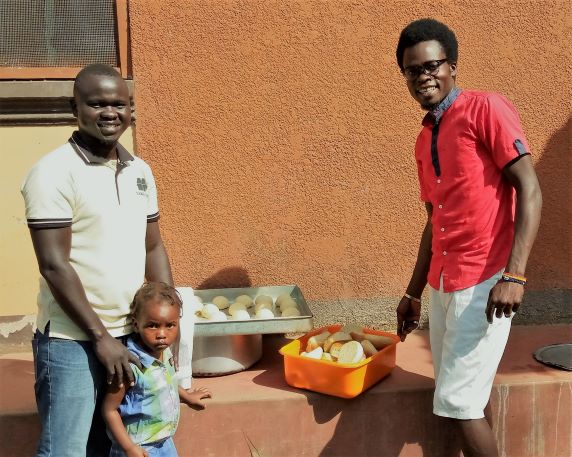The beauty of social work to me has always been the opportunity to experience and witness positive change manifest in the lives of the marginalized and vulnerable individuals. As an agent of change, there is nothing more fulfilling than to see someone, in their quest to better their life, eagerly embrace positive change with courage and optimism in the face of adversity. My current line of work involves working with youth prison inmates and ex-inmates by economically empowering and socially reintegrating them back into their respective communities. This is done through a number of different interventions which include but are not limited to training in entrepreneurship and life skills, conducting pre and post-release visits, helping ex-prison inmates build small scale businesses and continuously mentoring and supporting them.
I usually take keen interest in pre and post-release visits because I sincerely believe that these two interventions grant us the opportunity to walk together with the ex-inmates on their journey to greatness and in the process witness substantial change take its roots, an experience I truly find gratifying. These visits are an integral part of the reintegration process and it is without doubt that they have tremendously helped in fighting stigma and social exclusion faced by most ex-prison inmates after release. Furthermore, the visits have also helped raise awareness about the role of family and most importantly that of different community structures regarding social reintegration of ex-prison inmates, this has in turn increased community receptiveness of ex-offenders.
Last month, I was part of a team that went for a post-release visit in Amolatar District, where we visited one Odongo Ambrose, a 21 year old ex-prison inmate who served a one-year sentence for an assault in Amolatar prison. Being a school dropout, he opted to and succeeded in learning how to repair motorbikes, however this did not help him much due to scarcity of motorbikes in need of reparation from his area, worse still most bikers preferred experienced mechanics to those of his caliber. He couldn’t leave his home village to ply his trade elsewhere because he took up the responsibility of looking after his mother following his father’s demise. He has 3 elder sisters but they are all married and left the village and went to live with their respective husbands. In trying to provide for his mother, he had to go look for work at a nearby trading center on a daily basis, it was during one of these errands that he picked up a fight and wounded his friend. It proved quite costly for him because apart from being imprisoned for the assault, his mother also passed on a few months into his incarceration probably due to lack of proper care.
Whilst in prison, he was selected to undergo training in Entrepreneurship and life skills courtesy of Advance Afrika and Uganda Prison Service. To him, this was the turning point; his perception and approach to life changed forever, he now became more insightful of issues that affect his daily life. He attributes this to the holistic approach the training takes, as much as he appreciates the significant bit of entrepreneurship, he also values the life skills because according to him, it’s the life skills that have enabled him to effectively handle himself and his surroundings. This was after he understood and realized what he is capable of achieving if he embraces the power and importance of having a positive mindset.
Upon his release, apparently no immediate family members were present to welcome him back home except for a few distant relations who had been guarding his belongings while he was away and had come to do the handovers.
Now this is a young man who had just been released from prison, he had no parents or anyone to look up to. This in actual sense meant he was now more vulnerable than before. In this state, it was easy for him to backslide to his old ways of surviving but incredibly he chose not to. He said he now considers himself an entrepreneur as such he chose to focus on pursuing his long term goal of becoming an established businessman.
By the time we paid him a visit, he had been out of prison for 2 months. During this period, he had already prepared his farm and planted sweet potatoes. According to him, farming of sweet potatoes is his first and will remain his basic business because it requires fewer resources to manage and his plan is to sustain it by all means necessary. However, he intends to diversify to selling of second hand clothes from the money he will realize from the sale of the first bunch of the sweet potatoes. Clearly, this brought to light his new way of thinking as an entrepreneur.
It was quite inspiring to see such a young man with seemingly insurmountable hurdles, speak of his business plans with so much confidence and optimism. The unquestionable determination to see his plans succeed was incredible and I truly believe that with continuous mentorship and support, his plans will indeed materialize. More impressive was the fact that he set his plan in motion without any external support, a clear evidence that he has gotten rid of dependency syndrome. This highlights the immensity of the positive impact organizations are capable of making if they design and implement realistic and achievable empowerment programs, which the vulnerable can easily relate to and embrace with the understanding that the programs will eventually lead to the improvement of their livelihoods at an individual level.
Seeing this young man attain self-sufficiency amid his distress is quite motivating and encouraging, but hearing him speak of imparting these life-changing skills and knowledge to his fellow vulnerable youths calls for premature celebration of this program’s success. For it is the subtle ultimate goal of this program to see vulnerable individuals being empowered to empower others, thus creating the ripple effect that could prove to be the best solution of ensuring that the rural masses are economically empowered at grassroots level.





